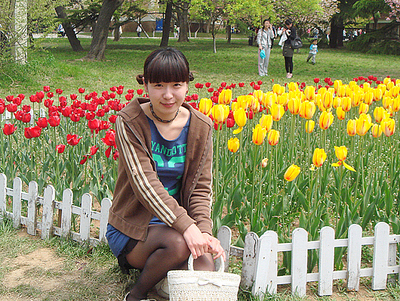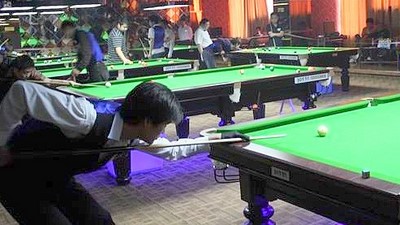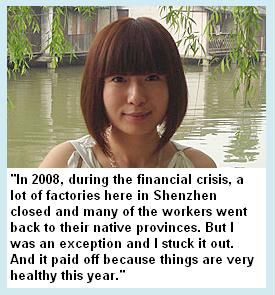
NEXTINSIGHT BRINGS YOU a series of interviews with both locals and expatriates who call the southern Chinese metropolis of Shenzhen both their workplace and home.
Our aim is to offer insights into what could be The Next Big Thing – Shenzhen – a city whose GDP growth and population have outpaced those of its richer neighbor, Hong Kong, seemingly since people began paying attention to the big and little dragons’ economic performance in the first place.
We also hope to bring a series of revealing snapshots on just what it takes for non-locals, as well as native Chinese, to live and work here, and thrive while doing so.
A common thread linking these industrious expats and successful locals together is how they have taken the best from their diverse backgrounds to make a name for themselves in what is an oftentimes faraway place like Shenzhen.
Things are rapidly changing in this dynamic 10-mln strong city which sports the highest percentage of non-local born residents of all the country’s major population centers.
London, New York and San Francisco of old – which in Chinese translates as “Old Gold Mountain” due to the belief by some in centuries past that the streets of America were indeed paved with the stuff.—were the destination of millions of Cantonese, Fujianese and other immigrants from Cathay looking to find their fortune in far-off, mysterious and more prosperous lands.
Now the hosts are becoming the guests as more and more foreigners – and successful Chinese from far flung provinces – are seeking to improve their lot in Shenzhen.
In this installment, we meet Ms. Wu Caimei, a 25-year old manager of a very upscale and successful health and leisure club in Luohu District -- the “Old Downtown” of Shenzhen.

I started by asking her if she was like me in that, like the vast majority of Shenzheners, I was not born and raised here, but was drawn here by the vibrant business environment.
“Well, I am a not exactly like you,” she laughed, looking back and forth at me and the assembled throngs of billiard-playing Chinese young men in front of us.
She made me guess where she was from, and on around the 10th province I named, she nodded her head.
“Yes, I am from Hainan originally.”
I should have guessed earlier, in fact, because the island is just a short but ill-advised swim across a channel in the South China Sea from Guangdong Province (Shenzhen’s home).
The tropical isle did not become a separate province until 1988, when it separated from Guangdong.
She said she landed this stable, well-paying job through a family connection, thus once again proving that in China, a country of over 1.3 bln upwardly mobile and enterprising people, it is not always what you know but who you know, i.e. guanxi.
“I was of course drawn here by the lure of higher wages. Salaries here are much higher than back on Hainan. Of course I miss home sometimes, but there are beaches, palm trees and friendly people here too.
“But there are a lot more friendly people back home,” she said.
Glancing around the room at the all-male crowd, who all seemed to be holding cues in one hand and cigarettes in the other, and they often broke the relative stillness with an indecorous interjection following a missed shot or unattractive break.
She said that while the pay scale in Shenzhen was a lot higher than back on the island, living costs here were also far pricier.
“The living expenses here are much higher, but given Hainan’s tourist-based economy, I would say that hotel rates are the only area in which prices back home compete with those in Shenzhen. But other that that, you need to make a good bit of money to do well – let alone get by – here in Shenzhen. “Transportation costs are also a lot more dear here, but at least there is a growing subway system here,” she said, adding that Hainan’s major cities of Sanya and Haikou had yet to break ground on their own systems.
“Transportation costs are also a lot more dear here, but at least there is a growing subway system here,” she said, adding that Hainan’s major cities of Sanya and Haikou had yet to break ground on their own systems.
I asked her how her English was, and if it were useful in this industry – billiards, card tables, table tennis and a swimming pool out back.
“Well, I studied it back in school, we all had to. But I have forgotten it all,” she said, adding that the need to use it at work seldom arose.
In fact, looking around the large and luxuriously carpeted billiard hall with leather couches facing each table, there were only two patrons who appeared to be non-local.
Just in front of us were two gentlemen who appeared to be from South Asia, but she explained that per-hour rates were clearly posted at the check-in counter in Chinese and English and that there wasn’t a whole heck of a lot of communication necessary other than “Can I have a Coke?” going on.
But she did say that there was a lot more English spoken in Shenzhen than back in Hainan.
“Of course, in the touristy beach areas of Sanya, you can hear a fair amount of English and a lot of Russian, actually.
"And although Shenzhen has a few English language schools and two or three international schools, Haikou and Sanya are not exactly market towns in some countryside, as each has an international school of its own.”
I then got down to business and asked her how the topsy-turvy 2008 had affected her earnings.
That was the year of killer snowstorms in the South, a disastrous earthquake in May, the magnet-like pull of Beijing during the Olympics (which meant many families spent their annual vacations up North that year rather than in Shenzhen and the South) and then the collapse of the global economy that autumn.
“I had just arrived here in 2008, so didn’t really get a firm sense of just how hard business was hit from a before-and-after point of view. But I can say that things are definitely better so far this year. The economy here is still very robust and people are making more money, so more and more people can come here to relax,” she said.

Photo: Andrew Vanburen
“In 2008, during the financial crisis, a lot of factories closed and many of the workers went back to their native provinces. But I was an exception and I stuck it out. And it paid off because things are very healthy this year.”
Making more money was definitely a requirement for getting a table or swimming lane here, because at 50 yuan per hour, the average hard-working migrant worker could ill afford such a splashing out, whether in the pool or playing it.
“As you can see, our facilities are very swanky, but in fact, if you were to take a stroll around the neighborhood, we are not that much higher than the average rate in this area.
“As you can see, 90% of our billiard-playing clientele are male, and another 90% or so are actually local Shenzheners. My partners are all local so most of our customers learn about our establishment via word of mouth. So we don’t have to spend any money on advertising and promotions,” she said.
Indeed, I had to manoever carefully to avoid bumping one of these intently concentrating male customers' elbows while trying to snap a shot of an action play on a pool table.
I asked Ms. Wu to describe the typical client.
“Most are not necessarily rich, but they are around 30 and keen to be generous in front of their peers. They come here to be cool, maybe to show off their skills to their friends, and flaunt their generosity just a bit. And this is a good place to do it because we are not cheap, and I believe we provide quite a luxurious setting.”
I asked her why there weren’t more high school boys breaking curfew or college kids skipping night classes to play a few games of billiards.
“I think we are a bit out of the price range of the younger crowd. We get them occasionally of course, but if you walk into any Internet café in this neighborhood, you will see literally hundreds of 20-something males all banging away at their keyboards, killing this or shooting that.
“It’s actually quite a depressing, loud and smoking place, don’t you think? Wouldn’t you much rather spend an evening here?” she asked, putting on her promo hat for a moment.
She also said that while she had only a fraction the number of clients that a crowded net café would have, she definitely got more from each visitor.

“This year we have a lot more traffic, so we raised prices over the past year. We didn’t do this haphazardly. In fact, my partners compared prices with outside peers to see if the market would swallow our hikes, and as you can see, they are swallowing,” she said, gesturing with a free hand to the lack of an idle pool table.
She said she came at the perfect time to Shenzhen.
“The old timers tell me that this area – Luohu – used to be a rundown, poor section of town. And while we are not quite as glitzy as Futian (an upscale neighboring district), we are definitely proud of Luohu’s growth.
“Bars are also a big competitor for us. But sometimes, guys just want a guys’ night out, and an environment where they can relax and actually hear each other talk.”
I asked her how she felt running such a establishment where, other than a couple female clerks running the cashier and handing out beverages or cleaning ashtrays, she was one of the only females in the hall.
“For cultural reasons, this is really a male sport. I have no problem with that. Men’s money is just as nice as women’s money, and it looks the same in my wallet.”
Ms. Wu was definitely a go-getter, being on the short side and seemingly soft spoken, but always keeping one eye on my notepad and the other simultaneously scanning the room, sentinel-like, for whatever it is billiard hall managers are on the lookout for – scratched tables? broken cues? quelling arguments?
Did she ever see a group of young ladies come in for a relaxing game of nine ball, or snooker, as in fact the hall did have both types of tables, and several of them?
“Yes, on occasion we do get girl groups, but it’s a rarity. Most of the ladies in here are, to be honest, dragged against their will to make their boyfriend’s friends jealous, or more likely, to ooh and aah at their paramour’s exploits and trickshots on the felt,” she said with a wry smile.
Related story: She made it big with a 200-yuan start and a humble job







